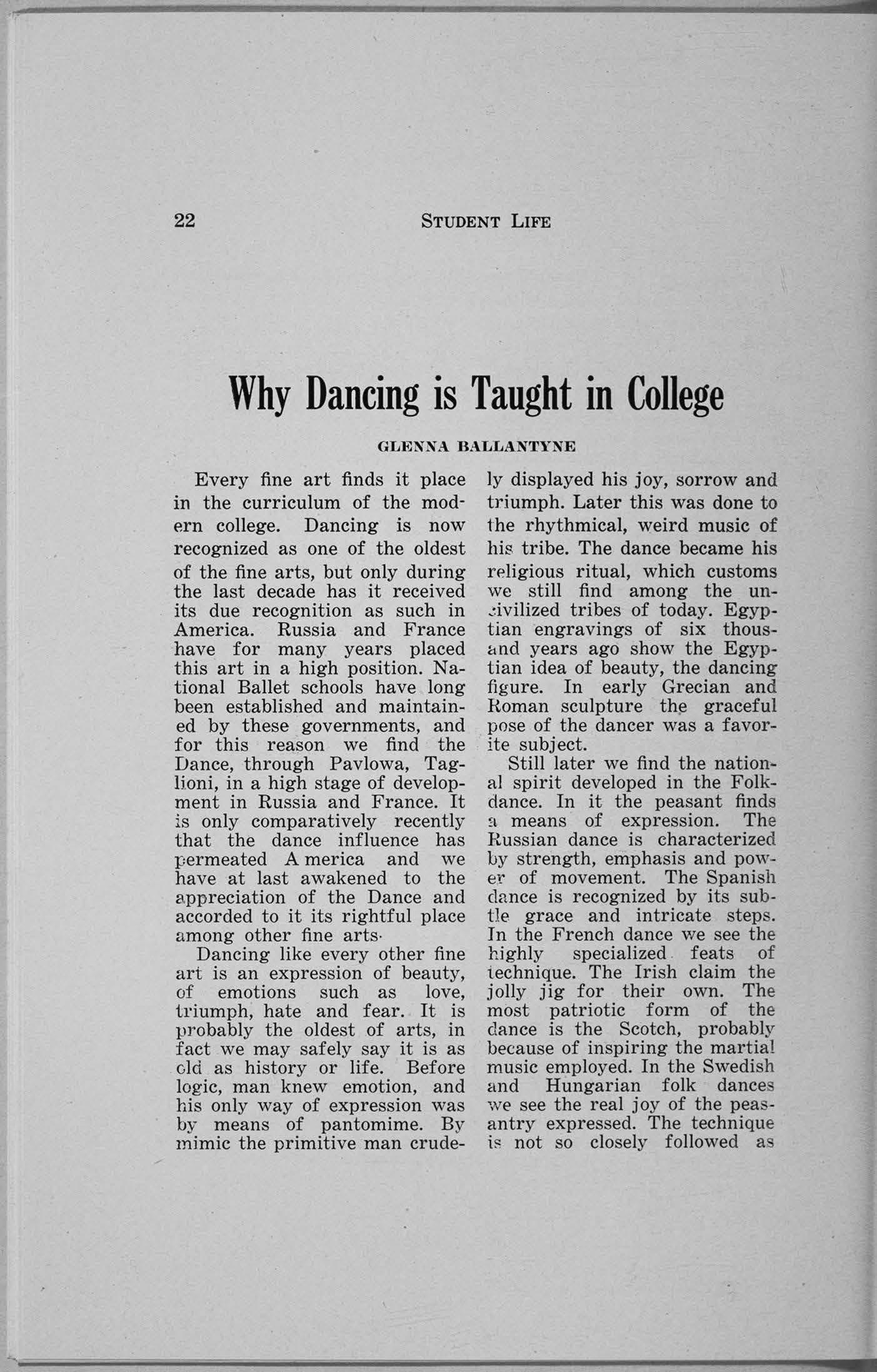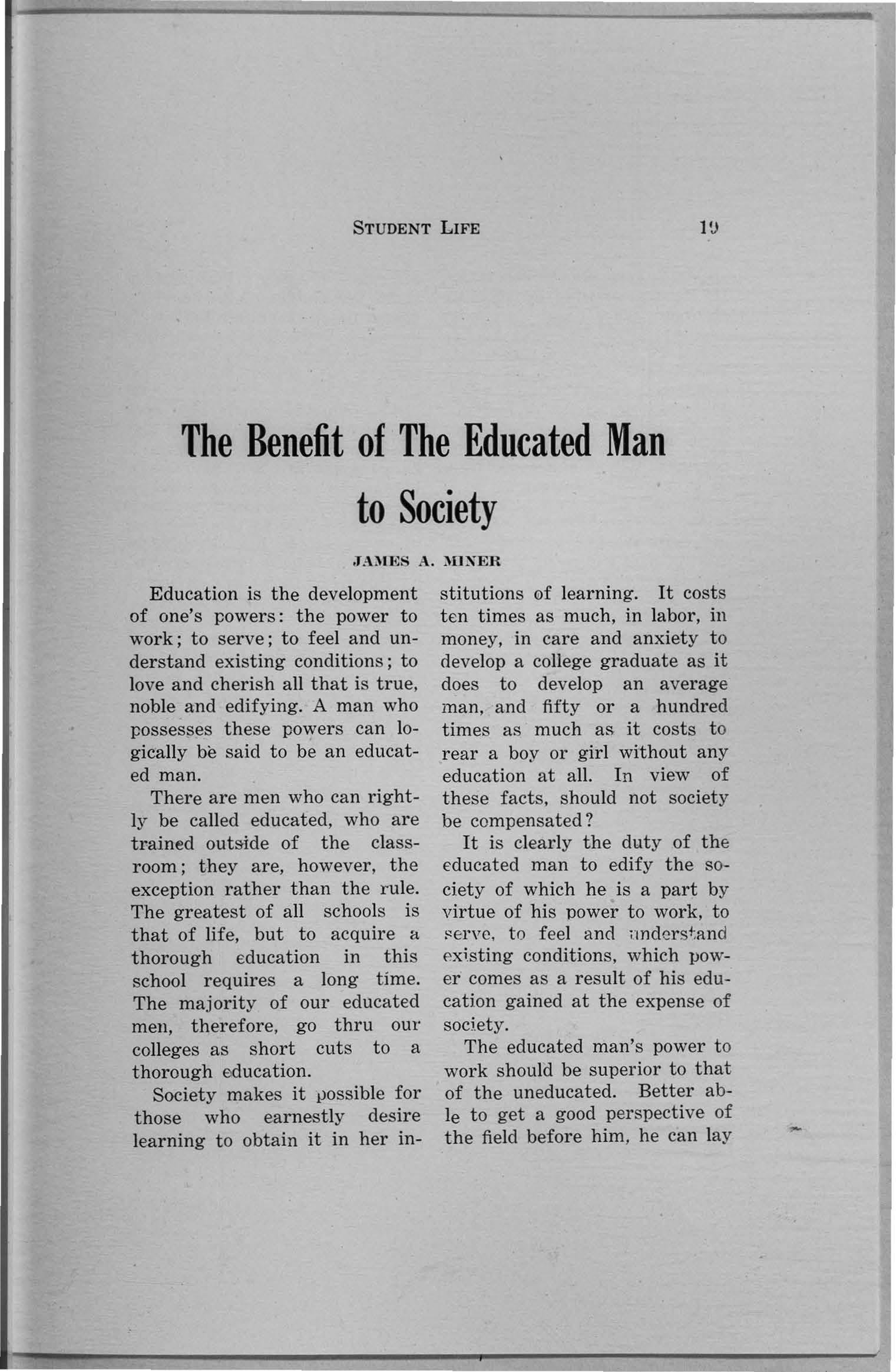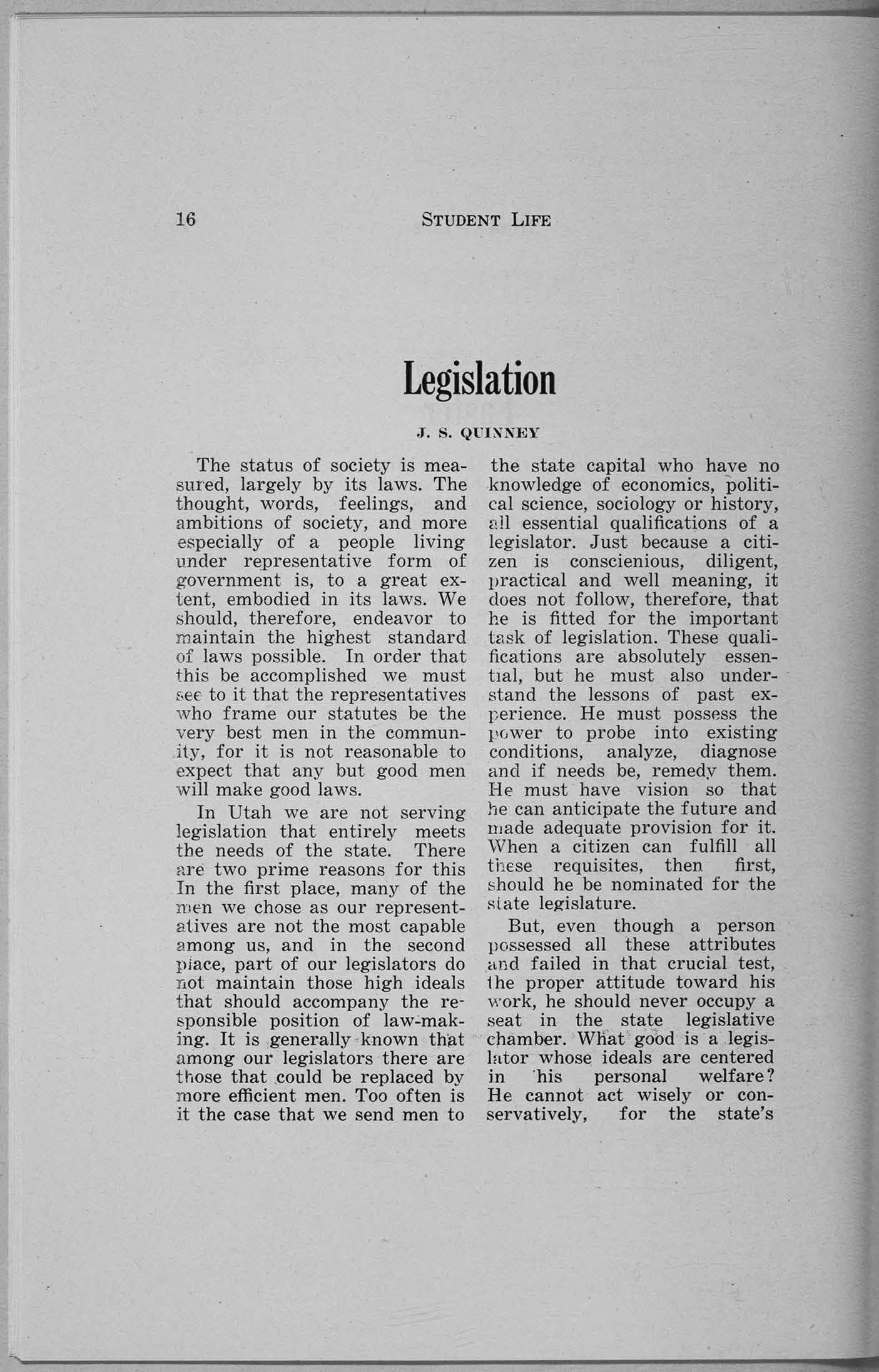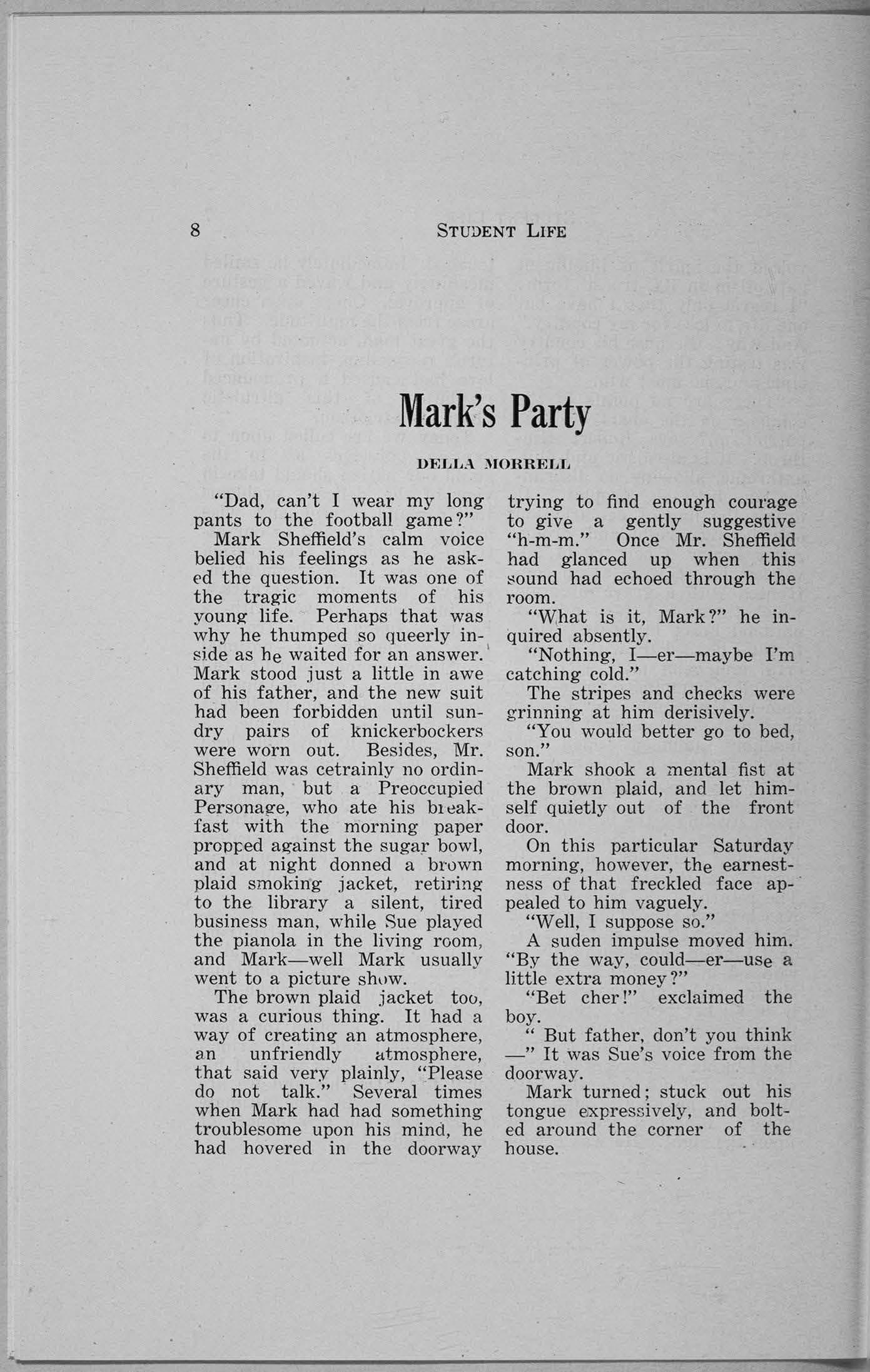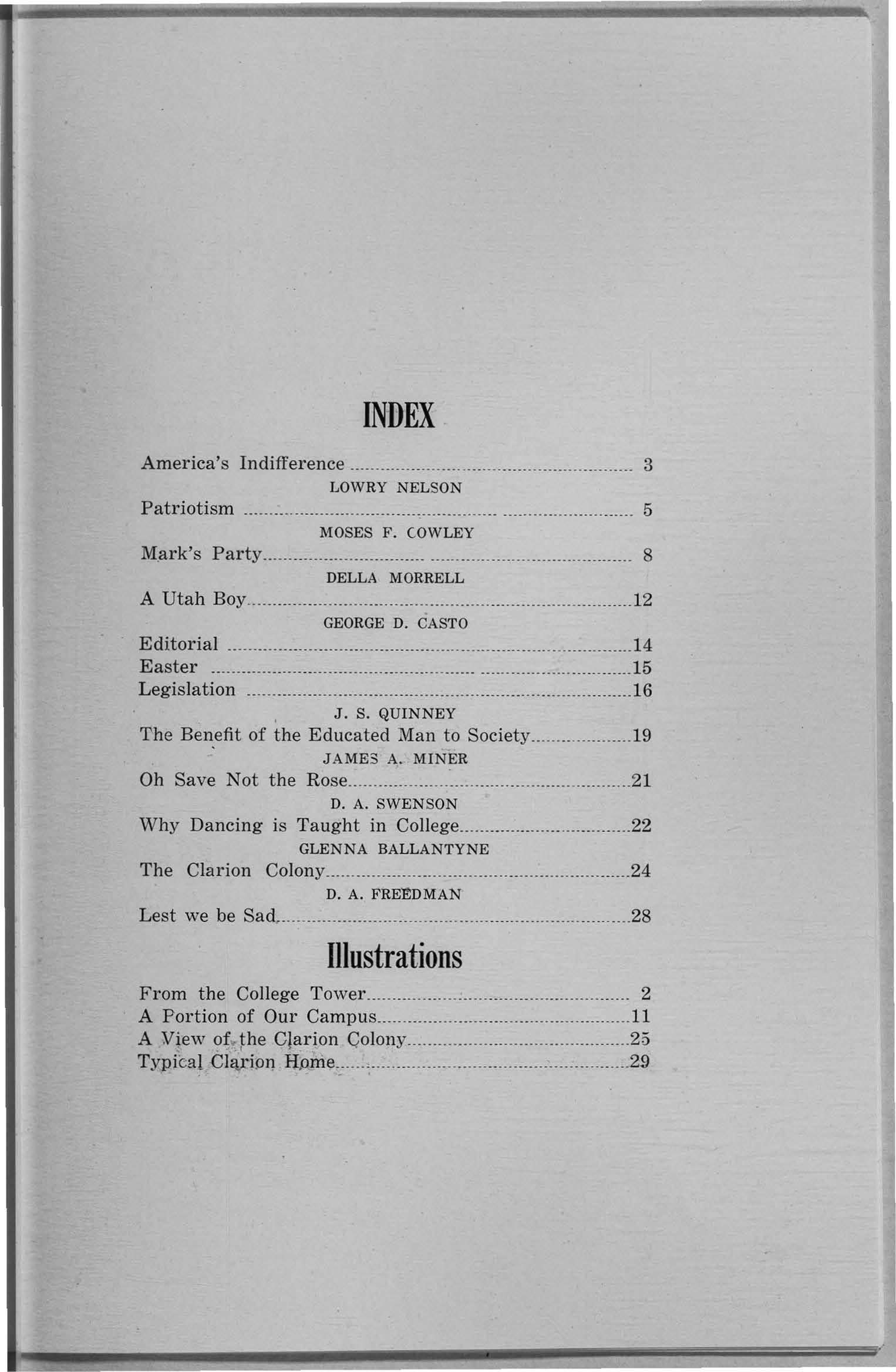STUDENT LIFE
5
-P~tri0tism--Insttuc _t1v;,f ~andIntelligent ,. WINNING ADDRESS FOR MEDAL GIVEN BY SONS OF AMERICAN UEVOLUTION MOSES F. CO WLEY
Patriotism may be defined as a Jove for one's country that gives an unre served and zealous support to her institutions and interests. In relation to the history of the development of civilization as characterized by wars and str uggles this word has a most profound significance. All forms of patriotism may be classed as two kinds : instinctive and intelligent. Both contain one fundamental element (in common) which is self-sacrifice with an unqualified devotion to the cause of the many; but other characteristics make a marked distinction bet ween them. Instinctive patriotism is that patriotism impelled by the emotions of man, regardless of hi s judgment. These emotions may be love, fear, hatred, ambition or a desire for aggrandizement, each or all of which may appear on the surface in the form "¡of Jove and loyalty for one's country. It comes by pure instinct alone; hence the object of this kind of patriotism may be right or wrong, as it sees only the cause of the party possessed by it. One zealous patriot ha s expressed it in these words, "Our Country! In her intercourse
with foreign nations may she always be in the right, but our country, right or wrong." As one of the underlying causes of the gigantic war now waging in Europe I sugge st this misdirected patriotism. In the seventeenth century. Louis IV of France vigorously prosecuted a policy of establishing a greater and more glorious country, disregarding the rights of his neighbors. This policy reached its climax in the career of Napoleon Bonaparte. He ¡ declared "What the French want is glory and the satisfaction of their van ity." Was this kind of patriotism lacking, to uphold him in his burning ambition? Let the hundreds of thousands of dead who passionately gave their lives for his cause answer this question in awfu l silence. G;ermany has Jived by the same national idea which obtained a powerful inception under Frederick the Great in the eighteenth century. Expressive of our treatment of this phase of the subjec t, he proclaimed after one of his victories, "Happy are they who having secured their own advantage can look tranquilly upon

